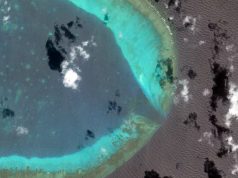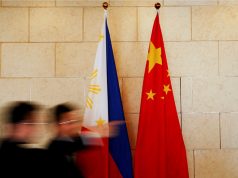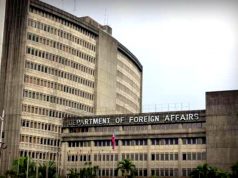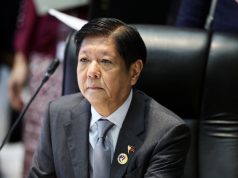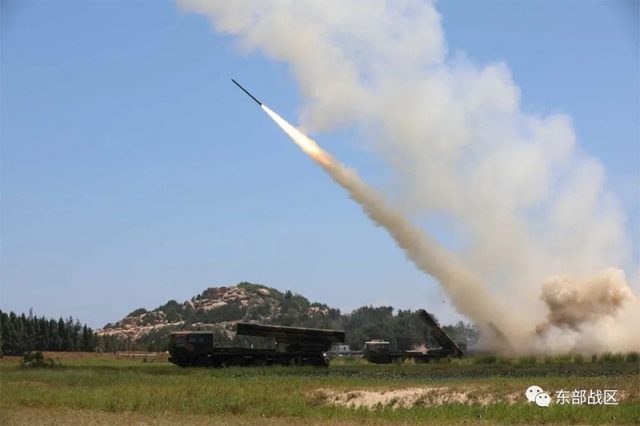
- Taiwan plays down concerns, likely to avoid panic
- China staging unprecedented military drills around Taiwan
- Follows visit by U.S. House Speaker Pelosi to Taipei
- China says it will sanction Pelosi over ‘vicious’ actions
- Pelosi, in Japan, joins PM Kishida in condemning China
TAIPEI— China‘s firing of missiles during military drills around Taiwan was an unjustified escalation, U.S. Secretary of State Antony Blinken said on Friday, as Beijing said it would sanction House of Representatives Speaker Nancy Pelosi for visiting the island.
Washington has made it repeatedly clear to Beijing it does not seek a crisis, Blinken told a news conference on the sidelines of the ASEAN Regional Forum in Cambodia as diplomatic ructions continued over Pelosi’s visit to the self-governed island that Beijing regards as its sovereign territory.
He said China‘s actions were disproportionate and significant, and the United States was seriously concerned but would not be provoked, before adding “there was no possible justification for what they have done”.
China launched its largest ever military drills in the seas and skies around Taiwan on Thursday, a day after Pelosi enraged Beijing by making a solidarity trip to the island. The drills are scheduled to continue until noon on Sunday.
China‘s foreign ministry announced on Friday that it would sanction Pelosi and her immediate family in response to her “vicious” and “provocative” actions.
“Despite China‘s serious concerns and firm opposition, Pelosi insisted on visiting Taiwan, seriously interfering in China‘s internal affairs, undermining China‘s sovereignty and territorial integrity, trampling on the one-China policy, and threatening the peace and stability of the Taiwan Strait,” a foreign ministry spokesperson said in a statement.
On Thursday, China fired multiple missiles into waters surrounding Taiwan in an unprecedented escalation during live-fire exercises.
Japan’s defense ministry, which is tracking the exercises, first reported that as many as four of the missiles flew over Taiwan’s capital. It also said that five of nine missiles fired toward its territory landed in its exclusive economic zone (EEZ), also a first, prompting a diplomatic protest by Tokyo.
Later, Taiwan’s defense ministry said the missiles were high in the atmosphere and constituted no threat. It gave no details of their flight paths, citing intelligence concerns.
Some Taipei residents, including Mayor Ko Wen-je, criticized the government for not putting out a missile alert, but one security expert said that could have been done to avoid stoking panic and playing into China‘s hands.
“It counteracted the effect of the Chinese Communist Party’s psychological warfare,” said Mei Fu-shin, a U.S.-based analyst. “The shock and fear were not as great as they could have been.”
Asked to comment on the missiles, Taiwan Premier Su Tseng-chang did not directly respond, but referred to China as the “evil neighbor showing off her power at our door.”
Bonnie Glaser, a Washington-based Asia security specialist at the German Marshall Fund of the United States, described as “unprecedented” reports that ballistic missiles were fired over Taiwan.
About 10 Chinese navy ships and 20 military aircraft briefly crossed the Taiwan Strait median line on Friday morning, a Taiwan source briefed on the matter told Reuters.
Earlier, Taiwan’s defense ministry said the island’s military had dispatched aircraft and ships and deployed land-based missile systems to monitor the situation there.
“In my view, the larger threat is that China is doing a rehearsal for a blockade, demonstrating it can block Taiwan’s ports and airports, and prevent shipping,” Glaser said.
‘Abyss of disaster’
China has said its relations with Taiwan are an internal matter.
Responding to the Chinese drills, President Tsai Ing-wen said Taiwan would not provoke conflicts but would firmly defend its sovereignty and national security.
Taiwan has been self-ruled since 1949, when Mao Zedong’s communists took power in Beijing after defeating Chiang Kai-shek’s Kuomintang (KMT) nationalists in a civil war, prompting the KMT-led government to retreat to the island.
Beijing says it reserves the right to bring Taiwan under Chinese control, by force if necessary.
Pelosi told reporters in Japan, during the final hours of her Asia tour, that China could not isolate Taiwan by preventing Western officials from traveling there.
“This visit isn’t about me, it’s about Taiwan,” she said.
During a news conference in Tokyo, Pelosi addressed the diplomatic furor caused by the congressional visit to Asia, and most specifically Taiwan.
“We have said from the start that our representation here is not about changing the status quo in Taiwan or the region,” she told a news conference after meeting Japanese Prime Minister Fumio Kishida.
The congressional delegation led by Pelosi visited Singapore, Malaysia, Taiwan and South Korea earlier this week, and wound up in Japan on Friday.
Pelosi met Kishida at his official residence, where the Japanese premier said the two allies would work together to maintain peace and stability in the Taiwan Strait, an important shipping route.
China‘s foreign ministry said it had summoned the Japanese ambassador in Beijing on Thursday over its participation in an “erroneous” Group of Seven (G7) nations statement on Taiwan, and also made complaints to EU envoys.
Japan, whose southernmost islands are closer to Taiwan than Tokyo, has warned that Chinese intimidation of Taiwan poses an escalating national security threat.
“I have informed speaker Pelosi that the fact China‘s ballistic missiles had landed near Japanese waters including EEZ threaten our national safety and security and that Japan had strongly condemned such actions,” Kishida said.




